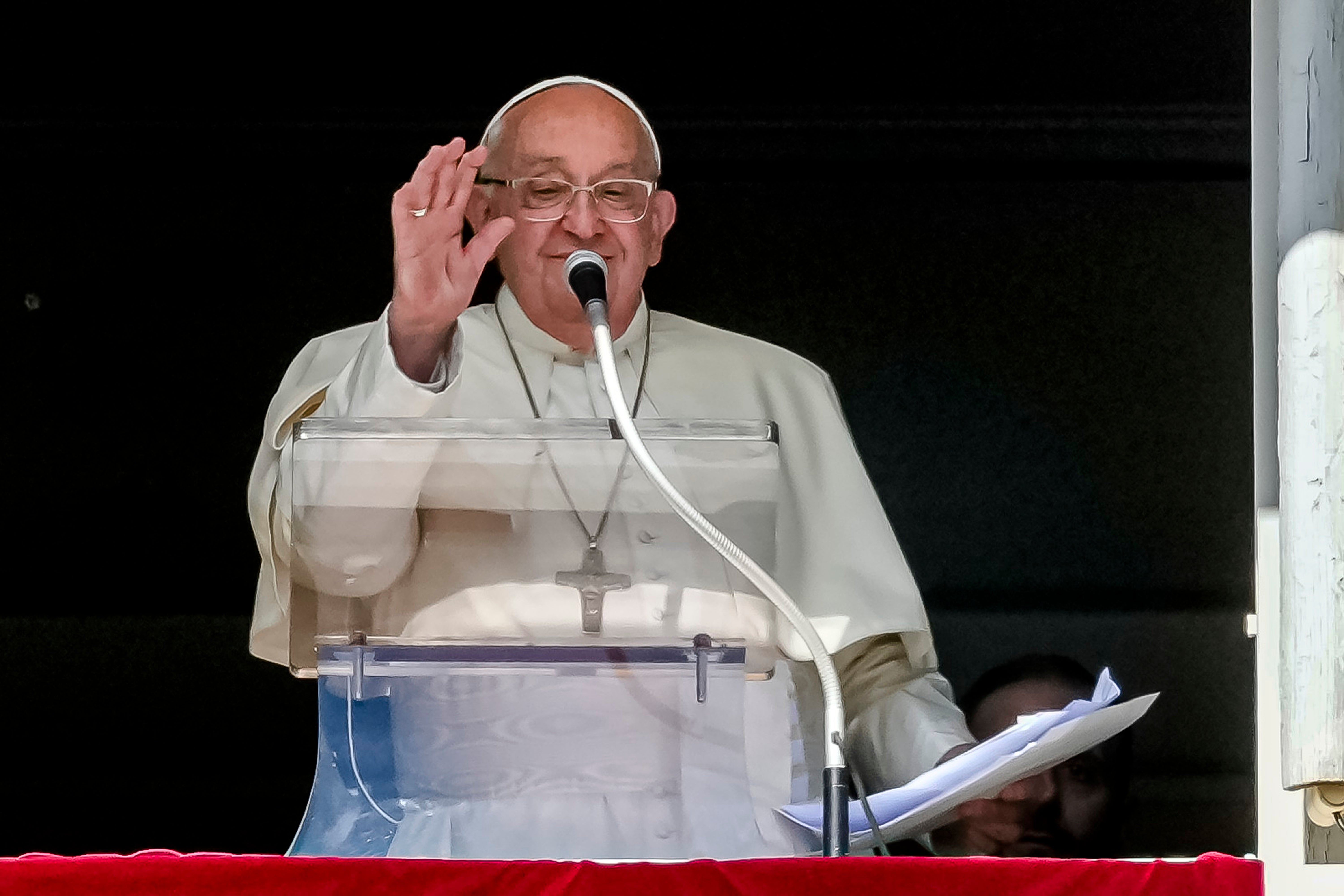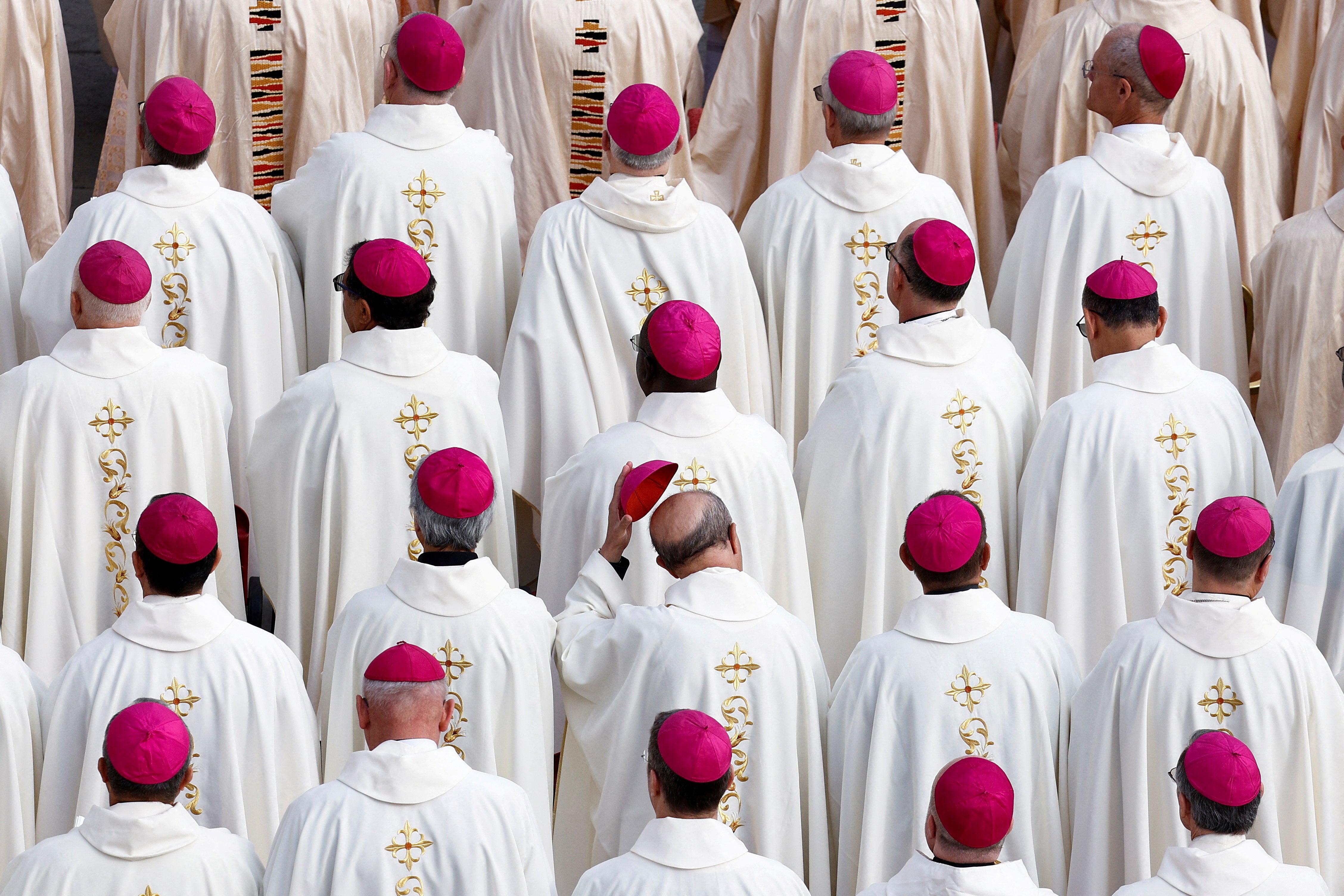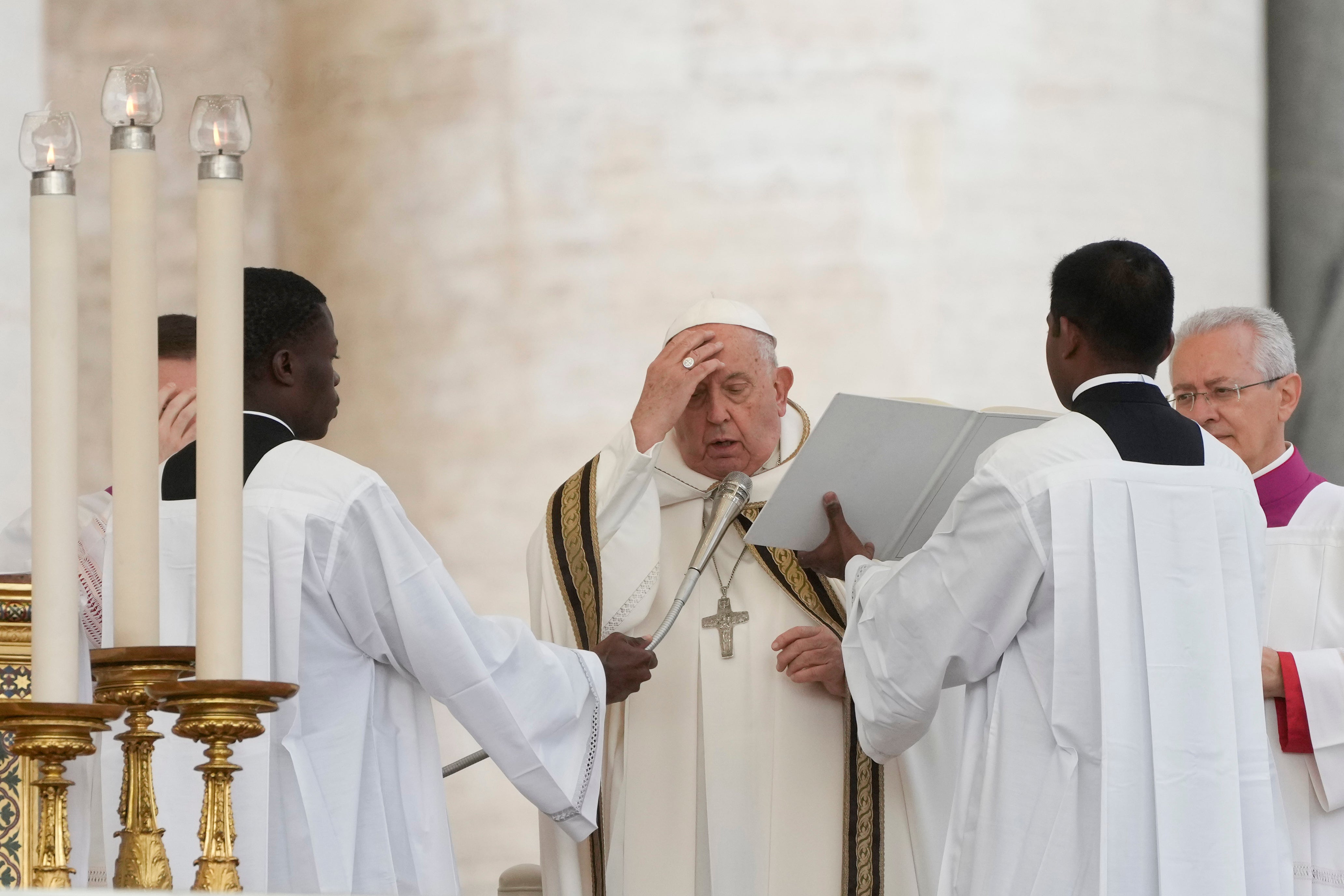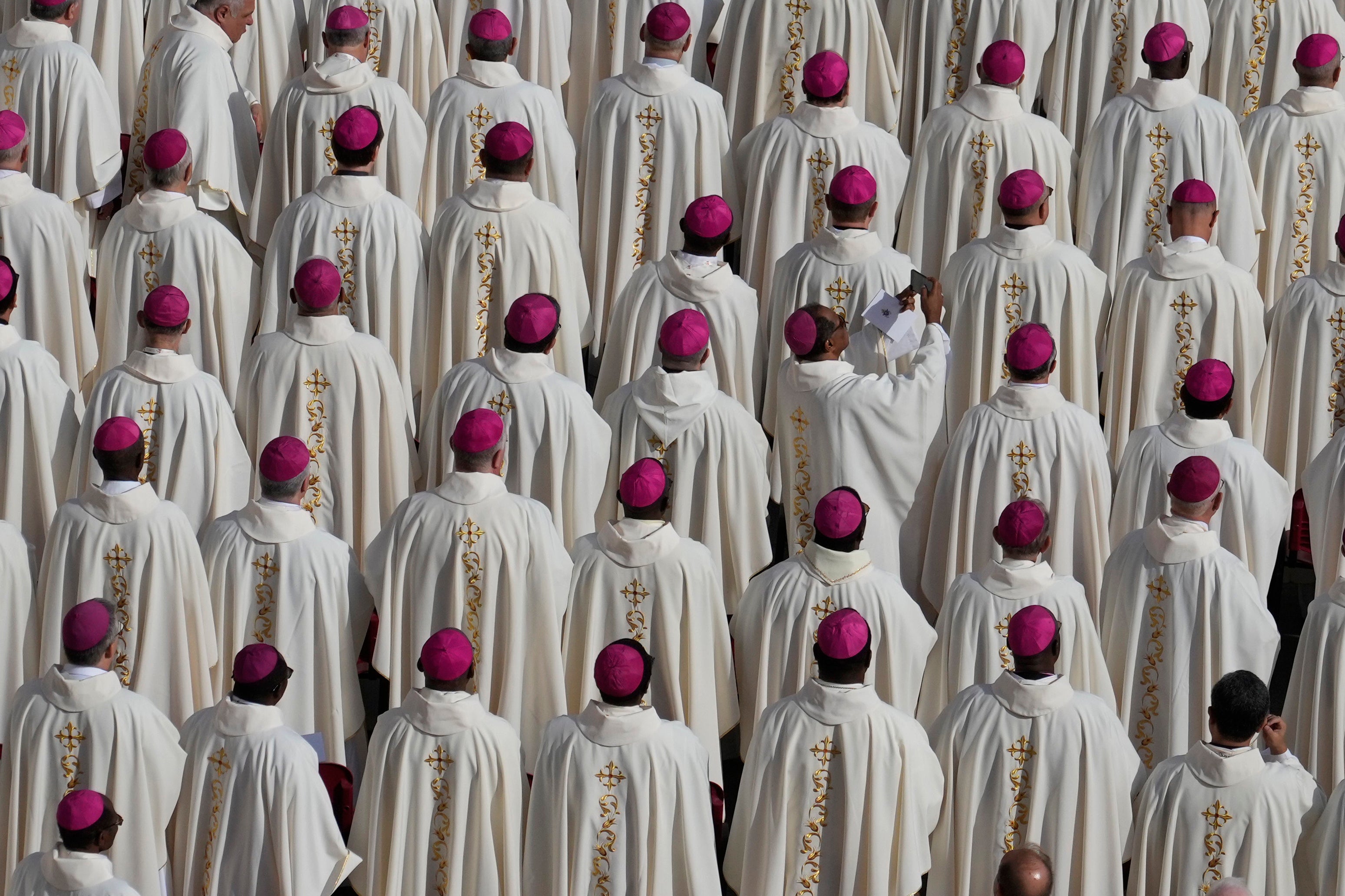Pope names 21 new cardinals – including a 99-year-old previously held hostage
The College of Cardinals will one day elect his successor

Pope Francis has named 21 new cardinals, significantly increasing the size of the College of Cardinals who will one day elect his successor.
The group announced on Sunday include a man who will be the oldest cardinal — Monsignor Angelo Acerbi, a 99-year-old retired Vatican diplomat who was once held hostage for six weeks in Colombia by leftist guerrillas — and the youngest — the 44-year-old head of the Ukrainian Greek Catholic Church in Melbourne, Australia, Bishop Mykola Bychok, named in a nod to the ongoing war in Ukraine.
The new cardinals will get their red hats at a ceremony, known as a consistory, on December 8, an important feast day on its own that officially kicks off the Christmas season in Rome. It will be Francis‘ 10th consistory to create new princes of the church and the biggest infusion of voting-age cardinals into the college in Francis‘ 11-year pontificate. Acerbi is the only one of the new intake who is over 80 and hence too old to vote for new pope. Usually the college has a limit of 120 on voting-age cardinals but popes often exceed the cap temporarily to keep the body robust as existing cardinals age out. As of September 28, there were 122 cardinal-electors; that means the new infusion brings their numbers up to 142.
Among those named by history’s first Latin American pope were the heads of several major dioceses and archdioceses in South America. They are the archbishop of Santiago del Estero, Argentina, Vicente Bokalic Iglic; the archbishop of Porto Alegre, Brazil, Jaime Spengler; the archbishop of Santiago, Chile, Fernando Natalio Chomali Garib; the archbishop of Guayaquil, Ecuador, Luis Gerardo Cabrera Herrera; and the archbishop of Lima, Peru, Carlos Gustavo Castillo Mattasoglio.
That stands in sharp contrast to the lone new cardinal from North America: the archbishop of Toronto, Francis Leo.

Showing the universality of the church around the world, Francis also tapped the archbishop of Tehran, Iran, Monsignor Dominique Joseph Mathieu, and the bishop of Bogor, Indonesia, Monsignor Paskalis Bruno Syukor. They both belong to the Franciscan religious order and are two of the four new Franciscan cardinals.
In addition to Syukor, Asia gets two more cardinals in Monsignor Tarcisio Isao Kikuchi, the archbishop of Tokyo; and Monsignor Pablo Virgilio Sinogco David, the bishop of Kalookan, Philippines. Aside from Asia the other region where the church is growing is Africa, which got two new cardinals: the archbishop of Abidjan, Ivory Coast, Monsignor Ignace Bessi Dogbo, and the bishop of Algiers, Algeria, Monsignor Jean-Paul Vesco. “Francis has again continued to extend the reach of the college of cardinals,” said Christopher Bellitto, a church historian at Kean University in Union, New Jersey. “Like his predecessors, but even more so, he’s making sure that Catholic leaders from the church’s edges have a voice at the big table.” Even before Sunday’s announcement, Francis had already named the vast majority of the voting-age cardinals who will one day vote in a conclave. According to Vatican statistics, before Sunday, 92 of the cardinals under 80 had been named by Francis, compared with 24 named by Pope Benedict XVI and six by St. John Paul II.

Added to their ranks on Sunday were two Vatican officials who hold positions that don’t usually carry with them a cardinal’s rank: the official in charge of the migrants section of the Vatican development office, the Rev. Fabio Baggio, and the official who organizes the pope‘s foreign travels, the Rev. George Jacob Koovakad. In a nod to the current synod underway at the Vatican this month debating the future of the church, Francis also tapped the Rev. Timothy Radcliffe, a British theologian who is one of the spiritual advisers for the meeting. Bellitto said it was “nonsense” to read the new cardinals as Francis doing something unique to try to stack the deck. “Every school superintendent, president, and prime minister picks people in their image to help their vision,” he said in an email. The nomination of Bychok gave Ukraine its only cardinal and sent a subtle political message as Russia’s war grinds on. Ukraine’s ambassador to the Holy See, Andrii Yurash, praised the nomination, even though Francis chose the head of Ukraine’s Greek Catholic Church in Australia over the Kyiv-based head, His Beatitude Sviatoslav Shevchuk.
On Monday Pope Francis also criticised what he called the “shameful inability” of the international community to end the war in the Middle East, one year after Hamas’ devastating attack on Israel.
“A year ago, the fuse of hatred was lit; it did not sputter, but exploded in a spiral of violence,” he said in an open letter to Catholics in the region.
“It seems that few people care about what is most needed and what is most desired: dialogue and peace,” he wrote. “Violence never brings peace. History proves this, yet years and years of conflict seem to have taught us nothing.”

Francis, who has also made Monday a day of fasting and prayers for peace for Catholics globally, has spoken more openly in recent weeks about the Hamas-Israel conflict, and has become more vocal in his criticism of Israel’s military campaign.
On September 29, the 87-year-old pontiff criticised Israeli airstrikes in Lebanon that killed Hezbollah leader Sayyed Hassan Nasrallah as well as non-combatants, suggesting the airstrikes went “beyond morality”.
Earlier in September, the pope called Israel’s actions in Lebanon “unacceptable” and urged the international community to do everything possible to halt the fighting.
In his letter on Monday, Francis directly addressed Gazans: “I am with you, the people of Gaza, long embattled and in dire straits. You are in my thoughts and prayers daily,” he wrote.
“I am with you, who have been forced to leave your homes, to abandon schooling and work and to find a place of refuge from the bombing. ... I am with you, who are afraid to look up for fear of fire raining down from the skies,” he said.
Bookmark popover
Removed from bookmarks